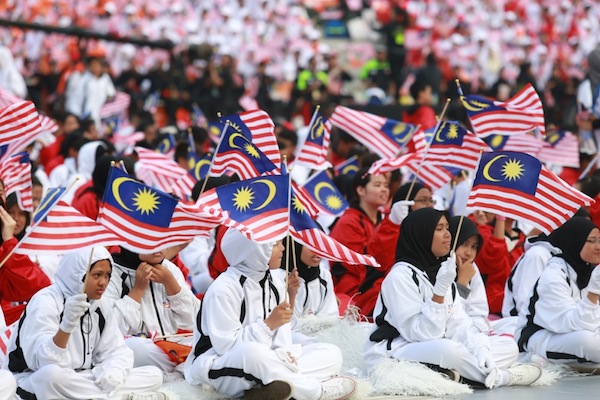KUALA LUMPUR, March 3 — Almost 60 per cent of those from the lower economic group supports Perikatan Nasional — the new alliance formed between Umno, PAS, Parti Pribumi Bersatu Malaysia (Bersatu) as well as Parti Bersatu Rakyat Sabah (PBRS), while 71 per cent Malaysians in the higher income bracket are still Pakatan Harapan (PH), a survey has shown.
A poll conducted by international polling firm YouGov before the Perikatan Nasional alliance took over the government from PH, showed that political allegiance differs depending on household income.
The results were tallied after surveying 1,162 Malaysians polled on YouGov Omnibus, between February 25 and February 27 this year.
“Higher income Malaysians are much more likely to prefer the first alliance to form government than lower incomes (71 per cent vs. 59 per cent). Lower incomes, on the other hand, are much more likely to prefer the second alliance than higher incomes (59 per cent vs 19 per cent),” YouGov said in a statement.
It said that geography also plays a role in voters preference, with those living in Kuala Lumpur, Selangor, Negeri Sembilan and Putrajaya being more likely to side with the first alliance (55 per cent PH and 33 per cent Perikatan Nasional) than those who live in other parts of Malaysia, at 38 per cent and 45 per cent respectively.
“These profound differences between more affluent urban parts of Malaysia and less affluent rural parts demonstrate the challenges posed by the current political situation for a multi-ethnic, developing society like Malaysia. The next government faces a tough task in restoring confidence and stability in such a diverse country, “ YouGov Head of Public Affairs and Polling Asia-Pacific Dr Campbell White said in the statement.
YouGov said that 73 per cent of the Malaysians surveyed are currently worried about the future of the nation, while one in five (21 per cent) are confident, with the remaining six per cent being undecided.
It found that despite the present political uncertainty, which has affected the nation's economy, Malaysians appear evenly split on how the economy would evolve in the coming year.
“About a third (32 per cent) think it will get better, over a third (37 per cent) think it will get worse and slightly less than a third (31 per cent ) think it will remain the same. Those over the age of 45 are more likely to feel pessimistic about the future of the economy than those below the age of 45 (42 per cent vs. 33 per cent).
“Conversely, low-income earners (earning less than RM 3,999 a month) are more likely to be optimistic about how the economy will perform than high-income earners (earning more than RM 8,000) (42 per cent vs. 22 per cent),” YouGov said.
Tun Dr Mahathir Mohamad resigned as the prime minister last week and was subsequently appointed as interim prime minister while Bersatu left the Pakatan coalition.
The Yang di-Pertuan Agong Sultan Abdullah Ri’ayatuddin Al-Mustafa Billah Shah had to interview all 222 MPs to collate the number of support for one person to be appointed as prime minister.
The Agong finally appointed Tan Sri Muhyiddin Yassin as the prime minister, for having the most support from his allies, Umno, PAS, GPS and Datuk Seri Mohamed Azmin Ali’s camp from PKR.



















